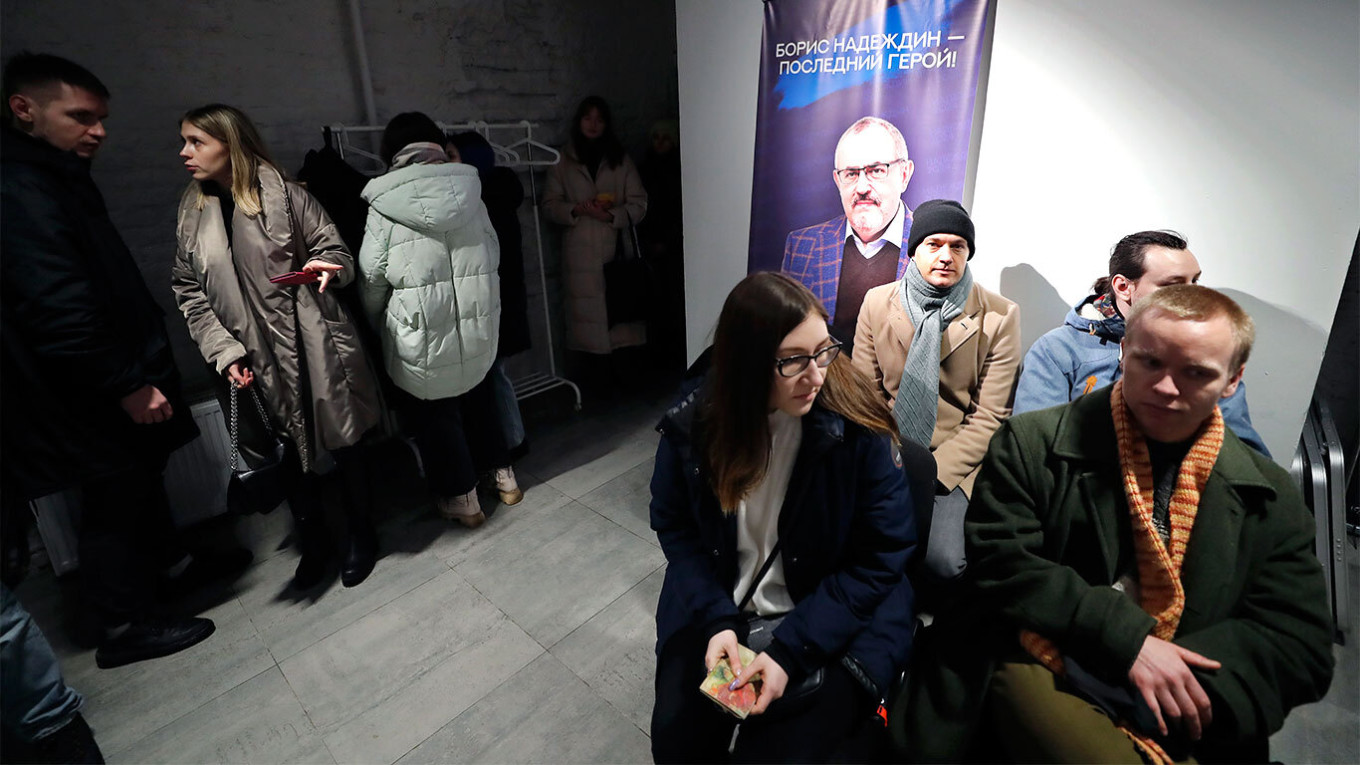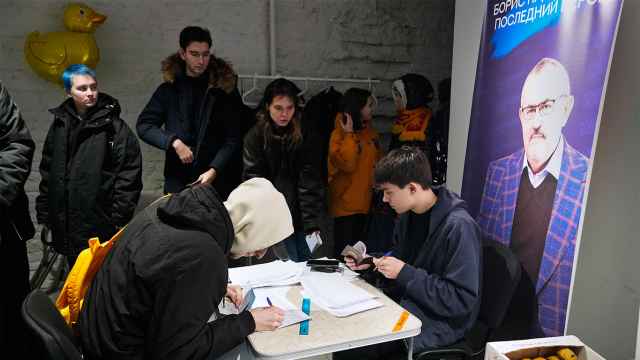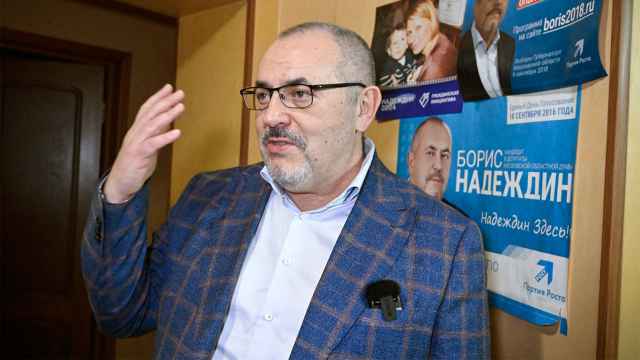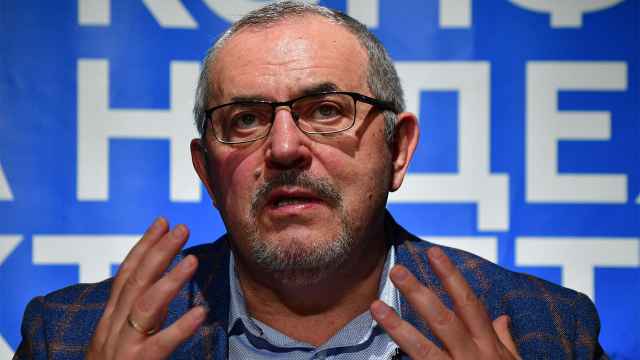Anti-war presidential hopeful Boris Nadezhdin said Thursday that he will not submit signatures endorsing his candidacy that were collected abroad to Russia's election authorities.
According to Russian election laws, a presidential hopeful running from a party not represented in parliament must collect 100,000 unique signatures endorsing his or her candidacy.
Nadezhdin, who hopes to run as an independent candidate from the Civic Initiative party, has seen a surge of support in recent weeks, as long lines of Russians both at home and abroad have formed at his campaign's offices to endorse his election bid.
However, Russia's Central Election Commission (CEC) holds the right to nullify the signatures of voters residing outside Russia.
“We welcome signatures from abroad but we won’t take them to CEC because we have collected enough inside the country,” Nadezhdin, 60, told the newspaper Nezavisimaya Gazeta.
He added that his campaign had collected more than 200,000 signatures of endorsement, which is double the amount required for him to run in Russia's March presidential election.
“Overseas collection was initially considered as a backup, but we decided to concentrate on [Russia] because of the high rates and easier logistics within the country,” Ivan Petrov, the spokesman of Nadezhdin’s campaign, told the investigative news outlet Agentstvo.
Nadezhdin’s campaign says the number of signatures indicated on its website — more than 180,000 as of Friday afternoon — does not include signatures collected outside Russia.
Agentstvo noted that the signature counter on Nadezhdin’s website at some point this week changed the phrasing from “collected signatures” to “signatures collected in Russia.”
Tens of thousands of Russians left the country after Moscow launched its invasion of Ukraine nearly two years ago, while thousands more fled when President Vladimir Putin announced a “partial” mobilization in September 2022.
Openly calling for ending the war against Ukraine, Nadezhdin has promised to end mobilization, return Russian soldiers home and free political prisoners if elected.
Russians both at home and abroad view endorsing his pro-peace presidential bid as one of the few remaining ways they can safely express their opposition to the invasion of Ukraine.
The Kremlin said Wednesday it does not view Nadezhdin as a serious rival to Putin, who is widely expected to win his fifth overall presidential term.
A Message from The Moscow Times:
Dear readers,
We are facing unprecedented challenges. Russia's Prosecutor General's Office has designated The Moscow Times as an "undesirable" organization, criminalizing our work and putting our staff at risk of prosecution. This follows our earlier unjust labeling as a "foreign agent."
These actions are direct attempts to silence independent journalism in Russia. The authorities claim our work "discredits the decisions of the Russian leadership." We see things differently: we strive to provide accurate, unbiased reporting on Russia.
We, the journalists of The Moscow Times, refuse to be silenced. But to continue our work, we need your help.
Your support, no matter how small, makes a world of difference. If you can, please support us monthly starting from just $2. It's quick to set up, and every contribution makes a significant impact.
By supporting The Moscow Times, you're defending open, independent journalism in the face of repression. Thank you for standing with us.
Remind me later.






